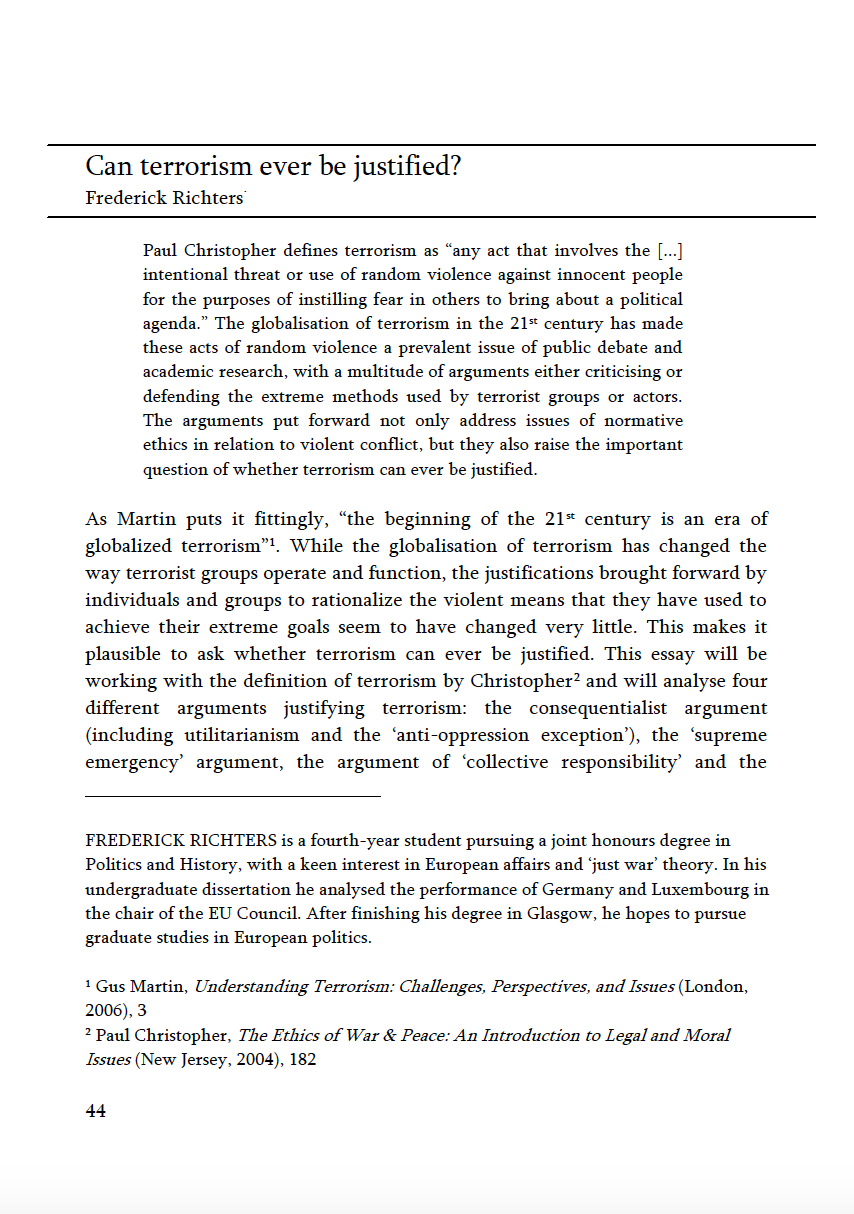Can terrorism ever be justified?
DOI:
https://doi.org/10.36399/GroundingsUG.5.237Keywords:
Terrorism, Morality, Justification, ArgumentationAbstract
Paul Christopher defines terrorism as “any act that involves the [...] intentional threat or use of random violence against innocent people for the purposes of instilling fear in others to bring about a political agenda.” The globalisation of terrorism in the 21st century has made these acts of random violence a prevalent issue of public debate and academic research, with a multitude of arguments either criticising or defending the extreme methods used by terrorist groups or actors. The arguments put forward not only address issues of normative ethics in relation to violent conflict, but they also raise the important question of whether terrorism can ever be justified.

Downloads
Published
Issue
Section
License
Copyright (c) 2012 Frederick Richters

This work is licensed under a Creative Commons Attribution 4.0 International License.
The CC BY 4.0 license is a Creative Commons license. This is a non-copyleft free license that is good for art and entertainment works, and educational works. It is compatible with all versions of the GNU GPL; however, like all CC licenses, it should not be used on software. People are free to: Share — copy and redistribute the material in any medium or format; Adapt — remix, transform, and build upon the material for any purpose, even commercially. The licensor cannot revoke these freedoms as long as you follow the license terms. But they must conform to the following terms: Attribution — You must give appropriate credit, provide a link to the license, and indicate if changes were made. You may do so in any reasonable manner, but not in any way that suggests the licensor endorses you or your use. No additional restrictions — You may not apply legal terms or technological measures that legally restrict others from doing anything the license permits.
Please check individual article PDF copies to see if any additional restrictions apply.







